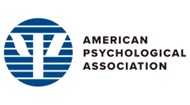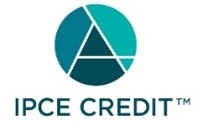
Lesser-Known Subtypes of Obsessive Compulsive Disorder: A Course for Healthcare Providers
Lesser-Known Subtypes of Obsessive Compulsive Disorder: A Course for Healthcare Providers
This 3-hour, on-demand online course covers 5 lesser-known subtypes of Obsessive Compulsive Disorder that many healthcare providers are not aware of and often misdiagnose. These include: Sexual Orientation OCD, Suicidal/Self-harm OCD, Aggressive OCD, Relationship OCD, and Pedophilia OCD. This course focuses on differential diagnosis and will include several role plays to help demonstrate how health care workers might go about diagnosing a patient with OCD and distinguishing it from other mental health disorders. This process is crucial for treatment planning.
Obsessive Compulsive Disorder ranks in the top 10 most disabling illnesses by the World Health Organization. Obsessive Compulsive Disorder is defined by the presence of obsessions and/or compulsions that are time-consuming and/or result in significant distress or impairment. Obsessions can be persistent thoughts, urges, or images that are experienced as intrusive and unwanted. Compulsions can be repetitive behavioral or mental acts, either designed to suppress or neutralize obsessions or done according to specific rules in order to prevent or reduce distress or some dreaded event or situation.
The lifetime prevalence of obsessive-compulsive disorder is between 2 and 3% of the population. Many Primary Care Physicians, Psychiatrists, Psychologists, Social Workers, Nurses, and Nurse Practitioners will treat patients who struggle with obsessive-compulsive disorder throughout their careers. It can take as long as 14 to 17 years for people with OCD to get properly diagnosed (Stengler et al., 2013), and OCD patients are often misdiagnosed or undiagnosed rates of up to 70%, which means they aren’t receiving treatment in a timely fashion or at all. When patients get properly diagnosed, it opens the door to receiving appropriate treatment, alleviating symptoms, and improving functioning as well as preventing years of future suffering.
Questions?
If you have questions related to this course or content, please contact Dr. Ragan via email at [email protected]
Pricing
MDs/Doctoral-Level/Other Professionals: $199
Residents/Students/Trainees: $159
Target Audience
This program is intended for: Psychologists, Psychiatrists, Social Workers, Primary care physicians, Nurses, and Nurse Practitioners
Learning Objectives
At the end of this program, participants will be able to:
- List 5 lesser-known subtypes of OCD.
- Identify prevalence rates of these subtypes.
- Describe questions to ask to properly distinguish OCD from other disorders.
- Identify patients in their practices who suffer from these subtypes of OCD.
- Discuss good treatment strategies for these subtypes.
Cancellation Policy
Refunds may be issued up to two weeks after registration. An administrative fee of $25.00 will be deducted from your refund. Please email us at [email protected] with questions or concerns.
Restriction on Use of Materials
This site is operated and maintained by The Massachusetts General Hospital Psychiatry Academy. No material or information from this site may be copied, reproduced, republished, uploaded, posted, transmitted, or distributed unless approved in writing by The Psychiatry Academy. Questions concerning the proper use of materials and information on this site should be directed to: [email protected]. No rights or licenses of any kind of The Psychiatry Academy’s intellectual property are transferred to, granted to, provided to, or received by you as a result of using this website.
Accreditation
In support of improving patient care, MGH Institute of Health Professions is jointly accredited by the Accreditation Council for Continuing Medical Education (ACCME), the Accreditation Council for Pharmacy Education (ACPE), and the American Nurses Credentialing Center (ANCC) to provide continuing education for the healthcare team.
Psychologists

Continuing Education (CE) credits for psychologists are provided through the co-sponsorship of the American Psychological Association (APA) Office of Continuing Education in Psychology (CEP). The APA CEP Office maintains responsibility for the content of the programs. MGH Institute of Health Professions designates this activity for 3.0 CE credit.
Physicians
MGH Institute of Health Professions designates this live activity for a maximum of 3.0 AMA PRA Category 1 Credits ™. Physicians should claim only credit commensurate with the extent of their participation in this activity.
Nursing
MGH Institute of Health Professions designates this activity for 3.0 contact hours for nurses. The American Academy of Nurse Practitioners Certification Board (AANPCB) accepts credit from organizations accredited by the ACCME and ANCC.
Social Workers

As a Jointly Accredited Organization, the MGH Institute of Health Professions is approved to offer social work continuing education by the Association of Social Work Boards (ASWB) Approved Continuing Education (ACE) program. Organizations, not individual courses, are approved under this program. State and provincial regulatory boards have the final authority to determine whether an individual course may be accepted for continuing education credit. MGH Institute of Health Professions maintains responsibility for this course. Social workers completing this course receive 3.0 clock hours for continuing education credits.
IPCE Credit

This activity was planned by and for the healthcare team, and learners will receive 3.0 Interprofessional Continuing Education (IPCE) credits for learning and change.
Lesser-known Subtypes of OCD and Differential Diagnosis:
- Sexual orientation OCD
- Pedophilia OCD
- Relationship OCD
- Suicidal/self-harm OCD
- Aggressive OCD
Key points:
1. Distinguish:
- Sexual Orientation Obsessions vs. Coming out as Gay/Lesbian/Bisexual/etc
- Pedophilia Obsessions vs. Pedophilia
- Relationship Obsessions vs. Relationship difficulties/Personality Disorders
- Suicidal/Self-harm Obsessions vs. Depression/Suicidal Ideation
- Aggressive Obsessions vs. Being violent/aggressive
2. Describe prevalence rates of these subtypes
3. Briefly discuss treatment options for these subtypes
Required Readings
Speaker(s):
Dr. Jennifer Ragan

- Dr. Jennifer Ragan is a licensed psychologist specializing in cognitive-behavioral treatments (CBT) of OCD spectrum disorders such as Obsessive Compulsive Disorder, Trichotillomania, Compulsive Skin Picking, Body Dysmorphic Disorder, and Hypochondriasis. She also specializes in cognitive behavioral therapy (CBT) and dialectical-behavioral treatment (DBT) of anxiety disorders, including panic disorder, agoraphobia, generalized anxiety disorder, social phobia, and specific phobias.
- Dr. Ragan is a staff psychologist in the OCD and Related Disorders Program in the Department of Psychiatry at Mass General & Harvard Medical School. She is involved in the training of clinical psychology interns, sees patients through the OCD program, and co-runs the Adult Intensive CBT program.
- She also has a private practice in downtown Boston focusing on using CBT and DBT for OCD spectrum disorders, anxiety disorders, mood disorders, and eating disorders.
- Dr. Ragan completed her postdoctoral fellowships at Massachusetts General Hospital/Harvard Medical School from 2004-2006 and received her PhD in Clinical Psychology from the University of Texas at Austin in 2005.
Planners:
Dr. Jennifer Ragan
David Rubin, MD
Jane Pimental, MPHJ
Reviewers:
David Rubin, MD (Content Reviewer)
Susan Sprich, PhD (Psychologist Reviewer)
Financial Relationships:
The following planners, speakers, content reviewers, and others in control of educational content have reported financial relationships with ineligible companies over the past 24 months:
Susan Sprich, PhD (Psychologist Reviewer)
Royalties (Co-Author): Oxford University Press
Royalties (Co-Edited Book): Springer
Honoraria (Associate Editor): Association for Behavioral and Cognitive Therapies (ABCT)
Available Credit
- 3.00 AMA PRA Category 1 Credit™
This activity has been planned and implemented in accordance with the accreditation requirements and policies of the Accreditation Council for Continuing Medical Education (ACCME) through the joint providership of IHP and Massachusetts General Hospital. IHP is accredited by the ACCME to provide continuing medical education for physicians.
IHP designates this Enduring activity for a maximum of 3.00 AMA PRA Category 1 Credit™. Physicians should only claim credit commensurate with the extent of their participation in the activity.
- 3.00 Nursing Contact Hours
Massachusetts General Laws, Chapter 13, sections 13, 14, 14A, 15 and 15D and Chapter 112, sections 74 through 81C authorize the Board of Registration in Nursing to regulate nursing practice and education.
This program meets the requirements of the Massachusetts Board of Registration in Nursing (244 CMR 5.00) for 3.00 contact hours of nursing continuing education credit. Advance practice nurses, please note: Educational activities which meet the requirements of the ACCME (such as this activity) count towards 50% of the nursing requirement for ANCC accreditation.
- 3.00 Social Workers
As a Jointly Accredited Organization, the MGH Institute of Health Professions is approved to offer social work continuing education by the Association of Social Work Boards (ASWB) Approved Continuing Education (ACE) program. Organizations, not individual courses, are approved under this program. State and provincial regulatory boards have the final authority to determine whether an individual course may be accepted for continuing education credit. MGH Institute of Health Professions maintains responsibility for this course. Social workers completing this course receive 3.00 clock hours for continuing education credits.
- 3.00 Participation
This course allows other providers to claim a Participation Certificate upon successful completion of this course.
Participation Certificates will specify the title, location, type of activity, date of activity, and number of AMA PRA Category 1 Credit™ associated with the activity. Providers should check with their regulatory agencies to determine ways in which AMA PRA Category 1 Credit™ may or may not fulfill continuing education requirements. Providers should also consider saving copies of brochures, agenda, and other supporting documents.
- 3.00 Psychologists CE Credit
Continuing Education (CE) credits for psychologists are provided through the co-sponsorship of the American Psychological Association (APA) Office of Continuing Education in Psychology (CEP). The APA CEP Office maintains responsibility for the content of the programs. MGH Institute of Health Professions designates this activity for 3.00 CE credit.

 Facebook
Facebook X
X LinkedIn
LinkedIn Forward
Forward